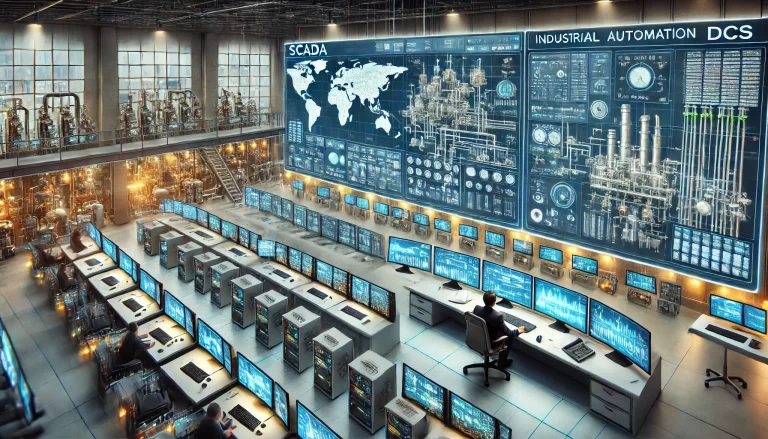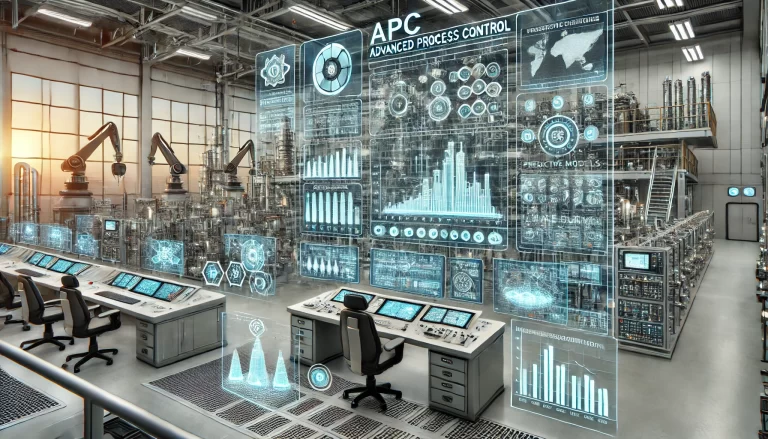Introduction
In industrial process control, achieving optimal automation and system performance is a constant challenge. Advanced control strategies have been developed to enhance traditional control methods. Generally, when advanced control is implemented in a Distributed Control System (DCS), it is based on complex control strategies built upon Proportional-Integral-Derivative (PID) controllers. However, when using Model Predictive Control (MPC) algorithms, a separate advanced control platform is often required, communicating with the DCS through OPC (OLE for Process Control). The additional platform, communication interfaces, and software introduce extra costs. From a maintenance perspective, integrating new software and hardware increases the workload for system maintenance, and maintaining an MPC system demands high expertise from engineers. But does this mean that complex control requires less expertise? Not necessarily.

Challenges of Complex Control in DCS
One of the major challenges of complex control in DCS is the flexibility allowed for control system configuration engineers. They often implement control schemes based purely on process requirements without necessarily considering optimal control solutions. This is an industry-wide issue. In essence, using PID-based complex control in DCS to solve multi-variable control problems is difficult and often exceeds the capabilities of some engineers. As a result, suboptimal control strategies are widespread, leading to inefficient single-loop control configurations.

The Advantages of Model Predictive Control
MPC is specifically designed to address multi-variable control problems. It utilizes models and parameters to transform control design into a constrained optimization problem, significantly reducing the difficulty of designing control strategies. However, the fundamental knowledge required for understanding process control and industrial operations remains unchanged. If an engineer is capable of designing effective complex control strategies, they can likely implement MPC as well.
Before a process unit starts operation, it is challenging to obtain an accurate process model. To ensure successful commissioning, multiple control strategies are often designed in advance. Once the unit is running stably, unless significant issues arise, there is often little motivation to further enhance automation levels. Additionally, many industrial units do not have highly complex multi-variable, time-varying constraint control problems. This is one of the reasons why PID and feedback control remain widely used.
However, in highly complex systems with multiple interacting variables, MPC demonstrates its full potential. In existing control schemes, certain constraint conditions may not adapt well to changes, requiring manual intervention. Modifying these control schemes presents several challenges:
The approval process for control modifications is often complex and time-consuming.
Implementing changes in an operational system is technically challenging.
Engineers may lack confidence in the effects of modifications.
There is often no direct support from technology licensors or process packages.
Ultimately, these challenges stem from both management and technical capability issues. The inherent uncertainty of industrial processes often conflicts with rigid control schemes, creating an opportunity for MPC implementation.

How MPC Addresses These Challenges
MPC provides a unified and flexible approach to handling the issues mentioned above. Unlike traditional control strategies that require complex modifications and reimplementation in the DCS, MPC offers several key advantages:
No need for structural modifications: MPC can be implemented without requiring significant changes to existing control structures.
No need for downloading new configurations: The control strategy can be modified dynamically without disrupting system operations.
Flexibility and adaptability: Engineers can adjust control schemes in real time, improving system response to changing process conditions.
Outsourcing feasibility: Even if an in-house team lacks expertise, implementation can be outsourced to an automation solutions provider.
From a cost-effectiveness perspective, MPC is not merely an optional enhancement—it is a necessary investment, particularly for complex industrial systems. The more intricate the process, the greater the benefits of MPC.

The Evolution of Advanced Control and MPC Adoption
Before MPC was developed, complex control was rarely used in industrial automation, primarily due to the limited capabilities of early control systems. At that time, DCS had not yet become widely adopted, and industrial control relied heavily on standalone PID controllers, Programmable Logic Controllers (PLCs), and Supervisory Control and Data Acquisition (SCADA) systems. The introduction of DCS improved control integration and facilitated the implementation of advanced control techniques. In China, the promotion of DCS and the introduction of MPC occurred concurrently, leading to greater acceptance of model-based control strategies.
Despite these advancements, the potential of PID-based multi-variable control strategies has not been fully leveraged. A lack of deep understanding of fundamental control principles has led to suboptimal implementations, ultimately affecting the effectiveness of MPC applications. Whether using PID-based advanced control in DCS or implementing MPC, the key is to approach the problem systematically and focus on fundamental process challenges.

Conclusion
Both complex control within DCS and Model Predictive Control serve as essential tools for optimizing industrial process control. To fully utilize their advantages, it is necessary to improve both technical execution and management strategies. Key areas for improvement include:
Optimizing the approval and modification processes to allow for more agile control updates.
Enhancing training and knowledge transfer for engineers to ensure proper implementation and maintenance of advanced control solutions.
Clarifying the appropriate use cases for PID-based complex control and MPC, ensuring each method is applied where it delivers the greatest value.
By addressing these fundamental issues, the adoption of MPC and advanced control solutions can be significantly improved, leading to more efficient and reliable industrial automation.
